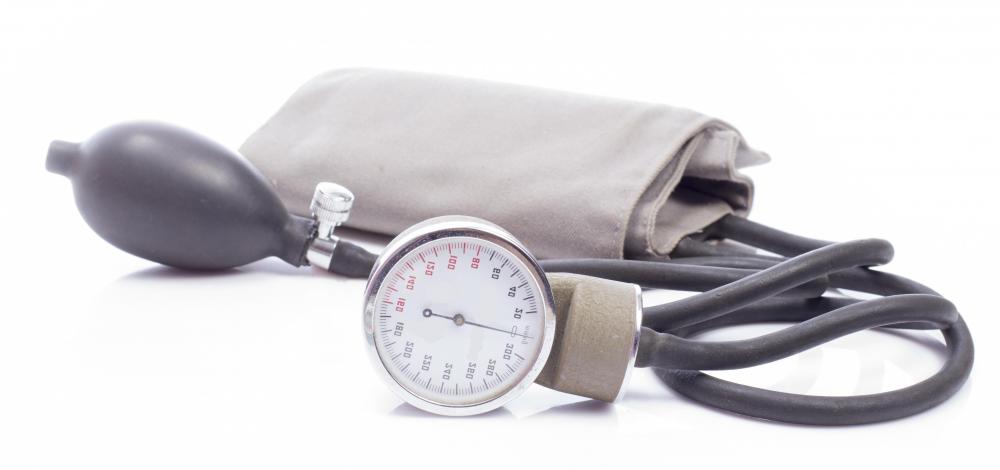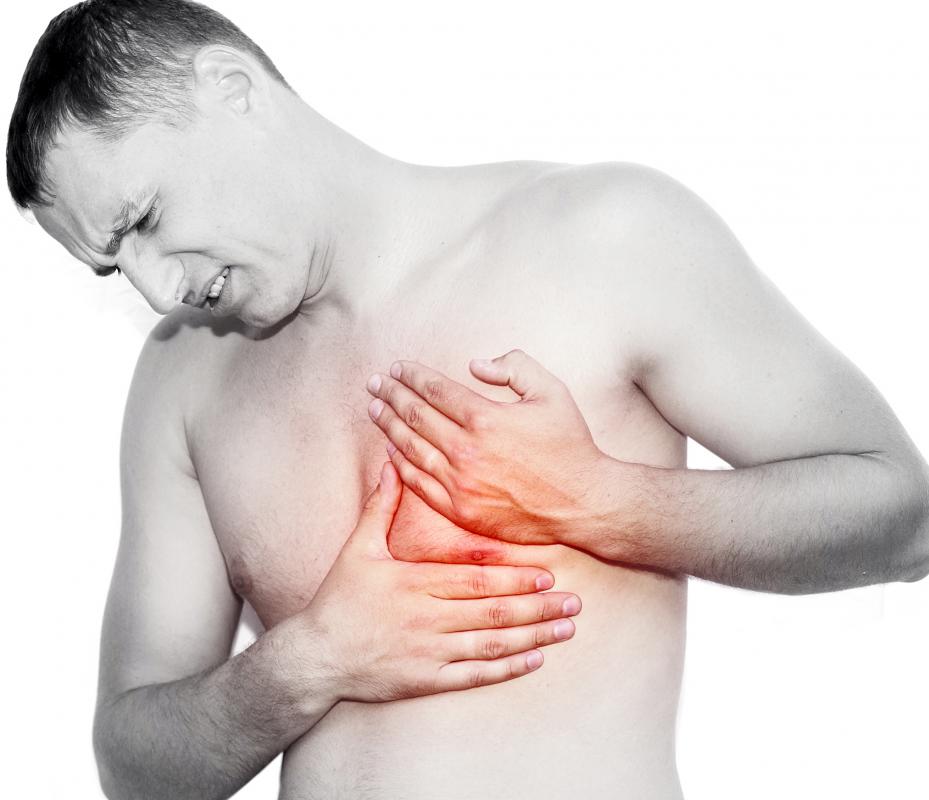At WiseGEEK, we're committed to delivering accurate, trustworthy information. Our expert-authored content is rigorously fact-checked and sourced from credible authorities. Discover how we uphold the highest standards in providing you with reliable knowledge.
What is a Vasodilator?
Vasodilators are a huge group of medications and other substances that may help lower blood pressure and be used to treat some of the symptoms of congestive heart failure. They are usually not the first line treatment for those people who simply suffer from high blood pressure because they can have numerous side effects. Yet they are frequently prescribed in combination with other medications to control a variety of cardiovascular disease symptoms.
Essentially, a vasodilator acts on the muscles surrounding the veins and/or arteries to make them relax, which allows the blood vessels to open or dilate. This creates an easier passageway for flowing blood, and may help reduce heart workload. Some of these medications work only on arteries and are called arterial dilators, and others work on the smooth muscle surrounding veins and are called venous dilators. More common is for this medication to affect both veins and arteries and this type is called a mixed dilator.

These medications aren’t just described by whether they work on veins, arteries or both. A vasodilator is also classed by how it acts to accomplish its purpose. This is where it gets daunting to try to understand the many drugs that at least in part result in vasodilation, and it’s also important to be aware that many of these drugs are used for more than one purpose and perform more than one action on the heart. Nitrates are vasodilators, for example, but they can also help in the treatment of angina. Other types of medications that cause some vasodilation include some diuretics, calcium channel blockers, ACE inhibitors, alpha-blockers, and angiotensin II blockers.

Each of these classes of medications will act in different ways. ACE inhibitors and angiotensin II blockers change the way the body uses angiotensin II. The former blocks its production and the latter prevents its mechanism in muscles. Both types of medications, by acting on this body-produced chemical, cause dilation of the blood vessels.
Doctors decide if or what type of medication is appropriate depending on many circumstances. These drugs are often taken for life once they’re initially prescribed, though some are used on a short-term basis. A vasodilator doesn’t cure but can help alleviate the symptoms of high blood pressure and congestive heart failure. Given the vast variety of medications that fall into this class, it would be impossible to list all potential side effects. Some of the most likely side effects associated with these drugs are headache, stomach upset, chronic cough, dizziness and changes in heart rhythm.
AS FEATURED ON:
AS FEATURED ON:

















Discussion Comments
What do you guys think about the alternative use of vasodilators? Some people use vasodilator medications not to treat medical conditions, but for other reasons.
Competitive bodybuilders often use it before their competition to dilate their veins and bring attention to their muscles. Some men might use them for better erectile even though they don't suffer from an erectile dysfunction.
Do you think this is right? I personally think this is really dangerous.
I learned about this recently from my doctor. I suffer from chronic dermatitis and my doctor told me that consuming too many vasodilators might be making it worse. He told me not to consume garlic, fish oil supplements and vitamin B3 capsules too much.
He also told me to make sure I keep any allergies under control with anti-histamine medications. Apparently, histamine, the substance we produce when our immune system is fighting an allergen, is also a vasodilator. Who knew!
My mom takes beta blockers and diuretics daily for her high blood pressure. She first started with diuretic vasodilators when she was diagnosed with high blood pressure in her late thirties. After a while though, the diuretics didn't work as well and the doctor decided to supplement with beta blockers.
It's great that we have vasodilator medications available to us. If my mom forgets to take her medication for even one day, she has many negative symptoms. She just doesn't feel well. Sometimes she's sad that she's become dependent on them. And there are days when she experiences bad side effects of vasodilators too. But I think it's better to maintain heart and circulation health with the help of medications than to suffer without them.
Post your comments